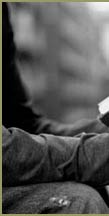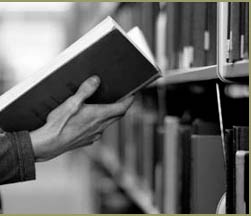
One thing is certain about the future of education at UW-Madison. Students will continue to experience a breadth and depth of academic disciplines. And they will graduate with the skills they need to be citizens of the world: the ability to apply their knowledge and skills, think critically, and engage in lifelong learning. This is the core definition of what it means to be educated. It will not change. Much is made of new technologies and trends and how they are used in teaching and learning. We recognize that they must continue to evolve. But while the tools may change, the skills endure. What survives is the confidence to evaluate new information and apply it intelligently. More and more, we must prepare our students to be researchers, to approach each new intellectual challenge with curiosity, reasoning, discipline, and constant evaluation. How will we help students to achieve this? During the past decade, we have developed a number of programs that teach the whole person through an integrated, collaborative approach to learning: Learning communities provide environments in which students with common interests can learn together. Serving as a home base within a large university, the communities encourage students to enrich their educational experiences through social and cultural activities. Amazing things can happen when students are active participants, helping to shape ways of learning that reach beyond the classroom. First-Year Interest Groups create neighborhoods, breaking a very large campus into smaller clusters of students. Grouped by residence hall or neighborhood, students are enrolled together in classes based on a central theme. Research programs are offered by most schools and colleges, and many courses integrate research into class assignments. Programs such as Undergraduate Research Scholars culminate in an annual symposium, which offers students the ultimate reward: sharing what they've learned with others. Honors programs include special coursework, research opportunities, and programming that challenges students academically. Service learning transforms the larger community into a classroom and allows students to see the real-world significance of a college education. Education is more than an assortment of classes. In a variety of forms—both in and out of the traditional classroom—it helps students learn to ask more questions as they travel the path to find answers. And it will do the same tomorrow. |
 |
|||
Fifteen UW-Madison students embarked on a journey of intellectual discovery and personal growth when they joined the Undergraduate Research Scholars program in 1999. Today, 130 students are participating in the program, which is just one example of the university's efforts to prepare students for a lifetime of learning. The program helps historically underrepresented first- and second-year students gain hands-on experience in research or other creative endeavors. They work side by side faculty and research staff mentors who are pushing the frontiers of knowledge in the physical and social sciences, engineering, and the arts. It's a powerful way to transform what is learned in the classroom into reality and relevance. Research Scholars are also guided by upperclass Research Fellows, students who have research experience—many by first becoming Research Scholars themselves. The fellows translate the university research experience for the younger students, gaining valuable skills in leadership and instruction along the way. Working together, faculty, scholars, and fellows develop new skills and discover new knowledge.
|
||||
| Home
| Chancellor’s Message Learning | Research | Community | Partnerships | Campus Year In Review | Facts & Figures |
||
| Chancellor's Page | UW Home | ||
File last updated: December 19, 2003 Feedback, questions or accessibility issues. Copyright © 2003 The Board of Regents of the University of Wisconsin System. |
||